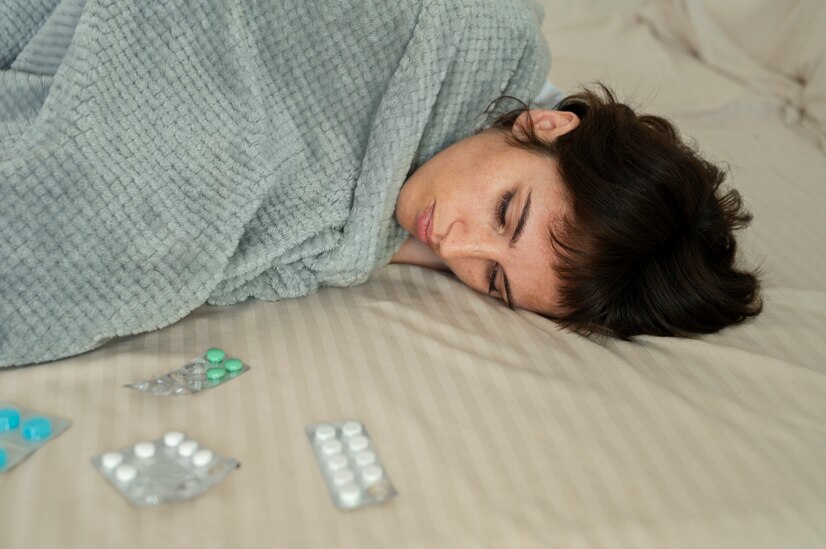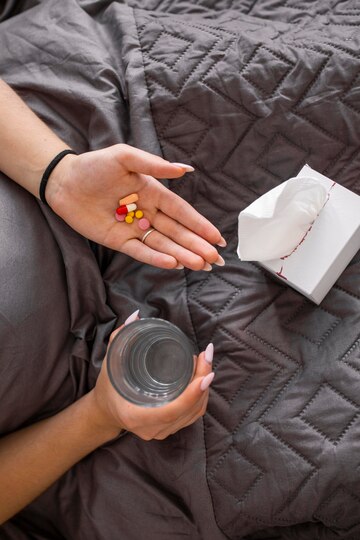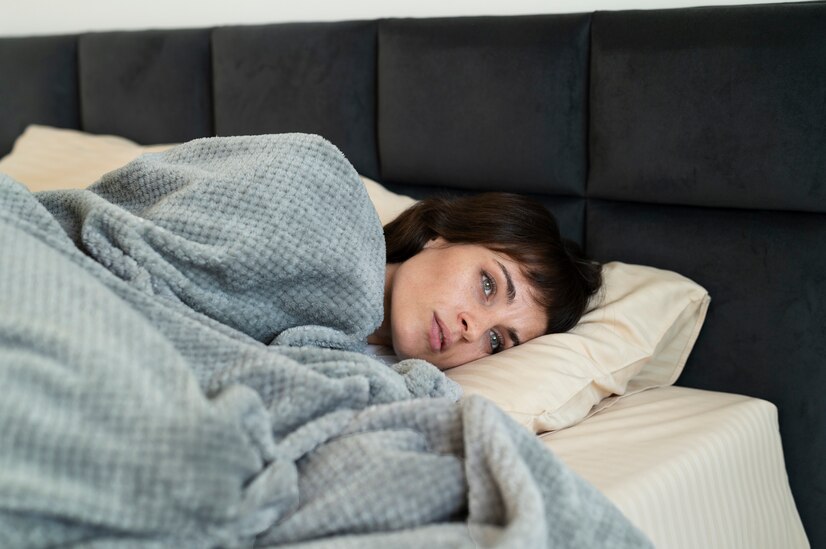Table of contents
Sleep is vital for our health, but millions of people struggle with insomnia, disrupted sleep, or poor sleep quality. Traditionally, prescription drugs and over-the-counter remedies have been the go-to solutions. However, concerns about side effects, dependency, and overall effectiveness have many individuals searching for a safer, more natural option. Increasingly, people are turning to CBD as a natural alternative to Sleep Medications.
In this blog post, we’ll explore how CBD can promote better sleep, compare it to traditional sleep medications, and answer common questions about its use.
The Growing Concern with Traditional Sleep Medications

While sleep medications like Ambien, Lunesta, and over-the-counter antihistamines can provide short-term relief, they are often associated with:
- Dependency and tolerance: Over time, users may need higher doses to achieve the same effect.
- Daytime drowsiness: “Hangover” effects can impair productivity and alertness.
- Memory and cognitive issues: Some medications can cause memory lapses or confusion, especially in older adults.
- Potential for addiction: Especially with certain sedatives and benzodiazepines.
Because of these risks, many people are seeking alternatives that can support natural sleep cycles without harsh side effects.
How CBD Works to Support Sleep Naturally

CBD, short for cannabidiol, is a non-intoxicating compound found in the cannabis plant. It interacts with the body’s endocannabinoid system (ECS), which plays a role in regulating processes like mood, pain, appetite, and sleep.
CBD may promote sleep by:
- Reducing Anxiety: Anxiety is a leading cause of insomnia. CBD has calming properties that may reduce racing thoughts and promote relaxation.
- Alleviating Pain: Chronic pain can interfere with sleep. CBD’s anti-inflammatory effects may ease discomfort.
- Regulating Sleep Cycles: Early research suggests CBD may help regulate the REM sleep phase, important for restorative sleep.
- Lowering Cortisol Levels: Cortisol, the “stress hormone,” can inhibit sleep. CBD may help balance cortisol levels at night.
CBD vs. Traditional Sleep Medications
| Feature | CBD | Traditional Sleep Medications |
|---|---|---|
| Mechanism | Supports ECS balance, reduces anxiety | Sedates central nervous system |
| Risk of Dependency | Low | High (for many types) |
| Side Effects | Mild (drowsiness, dry mouth) | Cognitive impairment, addiction risk |
| Ideal For | Long-term, holistic support | Short-term emergency use |
| Legal Status | Legal in many areas (check local laws) | Prescription needed for stronger types |
CBD offers a more sustainable and gentle option to Sleep Medications, especially for individuals aiming for natural sleep restoration.
Best Practices for Using CBD for Sleep
- Choose Full-Spectrum Products: These contain additional cannabinoids and terpenes that may enhance CBD’s effects through the entourage effect.
- Start Low and Go Slow: Begin with a small dose and adjust based on how your body responds.
- Consistency Matters: Regular use over several nights may yield better results.
- Use 30-60 Minutes Before Bed: Timing can make a big difference in effectiveness.
- Consult a Doctor: Particularly if you’re taking other medications or have underlying health conditions.
FAQs About CBD as an Alternative to Sleep Medications
Most people feel the effects within 30 to 90 minutes. However, it may take several nights of consistent use to see significant improvements.
CBD generally causes fewer and milder side effects, such as dry mouth or slight drowsiness, compared to prescription sleep aids.
No, current research suggests that CBD is not habit-forming, making it a safer option for long-term use.
CBD oil tinctures and gummies are popular choices. Look for products formulated specifically for sleep, often combined with melatonin or calming herbs.
You should never abruptly stop prescribed sleep medications without consulting your healthcare provider, as it can cause withdrawal symptoms.
Conclusion
CBD is emerging as a promising natural solution to Sleep Medications for individuals seeking better rest without the harsh side effects of pharmaceutical drugs. While more long-term studies are needed, current research and user testimonials support CBD’s role in promoting relaxation, reducing anxiety, and improving sleep quality.
If you’re tired of the risks associated with traditional sleep aids and want to explore a more holistic approach, CBD could be the natural solution you’ve been searching for. Always consult with a healthcare professional before making significant changes to your sleep routine.





